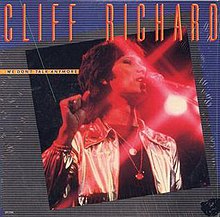
Terence Ernest Britten is an English-Australian singer-songwriter and record producer, who has written songs for Tina Turner, Cliff Richard, Olivia Newton-John, Status Quo and Michael Jackson amongst many others. Britten won the Grammy Award for Song of the Year in 1985 for "What's Love Got to Do with It".
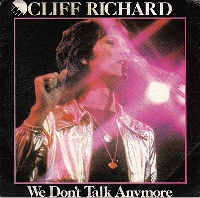
"We Don't Talk Anymore" is a song recorded by Cliff Richard that reached number one in the UK Singles Chart in August 1979, remaining there for four weeks. Produced by the Shadows' rhythm guitarist, Bruce Welch, and written by Alan Tarney, it was Cliff Richard's tenth UK number one and his first since "Congratulations" in 1968.
Tarney/Spencer Band were a rock band formed in London in 1975 with Trevor Spencer on drums and Alan Tarney on lead guitar, bass guitar and lead vocals. Both had been in Australian bands, including James Taylor Move, prior to relocating to the United Kingdom, where they formed the duo. The group issued three albums, Tarney and Spencer (1976), Three's a Crowd (1978) and Run for Your Life (1979). Their single, "No Time to Lose" (1979), received airplay in the United States on album-oriented rock radio stations. It charted on the Billboard Hot 100 in both 1979 and again in 1981 upon re-issue. By the end of 1979, Tarney/Spencer Band had broken up and both founders undertook careers as songwriters, session musicians and record producers.

Always Guaranteed is the 28th studio album by Cliff Richard, released in 1987. The album peaked at number 5 in the UK Albums Chart, and spent a total of 24 weeks on the chart over 1987–88. The album was certified Platinum by the BPI and achieved sales over 1.3 million globally. The album was produced by Alan Tarney who had produced two of Richard's previous albums, Wired for Sound and I'm No Hero in the early 1980s and written Richard's highest selling single "We Don't Talk Anymore" in 1979. Tarney wrote all but one track on the album.
Alan Tarney is an English record producer and musician. He was born in Northside, Workington, Cumberland, but spent his teenage years in Adelaide, Australia, where he met his songwriting and musical partner Trevor Spencer. He is best known for his association with Cliff Richard and producing "Take On Me" by a-ha.

Every Face Tells a Story is the nineteenth studio album by Cliff Richard. Released in March 1977, it followed-up Richard's comeback album, I'm Nearly Famous. The album peaked at No.8 during a 10-week run on the UK Album Chart and spawned three hit singles. "Hey Mr. Dream Maker" was released as the first lead single in November 1976 and reached number 31 in the UK Singles Chart. "My Kinda Life" was released as a single in late February 1977 and peaked at number 15 in the UK. The third single, "When Two Worlds Drift Apart" was released in late June and reached number 46 in the UK.
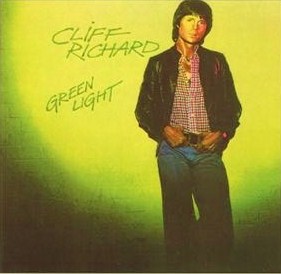
Green Light is a studio album by Cliff Richard, released in September 1978. It was his 21st studio album.
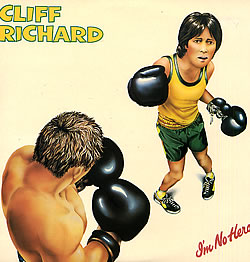
I'm No Hero is the 23rd studio album by Cliff Richard, released in 1980. The album includes three hit singles, of which "Dreamin'" and "A Little in Love"were top 20 hits in both the UK and the US.
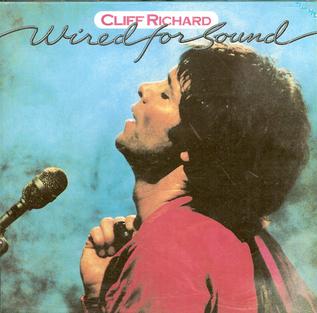
Wired for Sound is the 24th studio album by Cliff Richard, released in September 1981. The album peaked at number 4 in the UK album charts upon release, and spent a total of 25 weeks on the chart in 1981–82. The album was certified Platinum by the BPI, and achieved global sales of over one million.

"Devil Woman" is a 1976 single by British singer Cliff Richard from his album I'm Nearly Famous.

In My Life is the title of Cilla Black's eighth solo studio album released in 1974 by EMI. The album was her first to be produced by Australian producer David Mackay who had notched up chart hits for Cliff Richard and The New Seekers.

"Carrie" is a song performed by Cliff Richard and released in December 1979 as the third single lifted from Richard's album Rock 'n' Roll Juvenile. It reached number 4 in the UK Singles Chart and became an international hit.

"Hey Mr. Dream Maker" is a song by Cliff Richard from his album Every Face Tells a Story and the first single to be released from the album. It was released as a single in 1976 reaching number 31 on the UK Singles Chart. It was a top ten hit in South Africa reaching number 6.
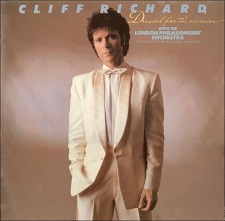
Dressed for the Occasion is an album by English singer Cliff Richard, recorded live with the accompaniment of the London Philharmonic Orchestra at the Royal Albert Hall in November 1982. It was released in May 1983 on the EMI label and reached No. 7 in the UK Albums Chart and No. 30 in Australia. It was certified Silver in the UK.

"Green light" is a song recorded by Cliff Richard and released as a single in February 1979. It was the third single and title track taken from his 1978 studio album Green Light. The song is written by Alan Tarney who went on to write some of Richard's biggest hits, such as the follow-up single "We Don't Talk Anymore", "Dreamin'" (1980), "Wired for Sound" (1981) and "Some People" (1987).

Stronger Thru the Years is a compilation album by Cliff Richard, released in 2017.

The Whole Story: His Greatest Hits is a greatest hits album by Cliff Richard, released in 2000. It includes 46 of Richard's biggest hits, from his first single "Move It" to his then most recent single, "The Millennium Prayer". The album reached number 6 in the UK Albums Chart.

"I Can't Ask for Anymore Than You" is a song by British singer Cliff Richard, released as the third single from his album I'm Nearly Famous in July 1976. It reached number 17 in the UK Singles Chart and number 80 in the Billboard Hot 100. It also did particularly well in Ireland, reaching number 2.
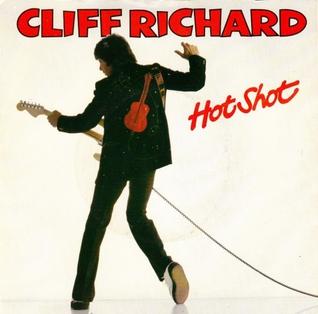
"Hot Shot" is a song performed by Cliff Richard and released as a single in October 1979. Written by Terry Britten and B. A. Robertson, it was the second single lifted from Richard's 1979 album Rock 'n' Roll Juvenile. It reached no. 46 in the UK Singles Chart.
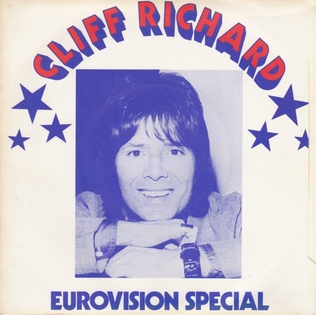
"Help It Along" is a song by British singer Cliff Richard, released as a four-track maxi single. It peaked at number 29 on the UK Singles Chart.

